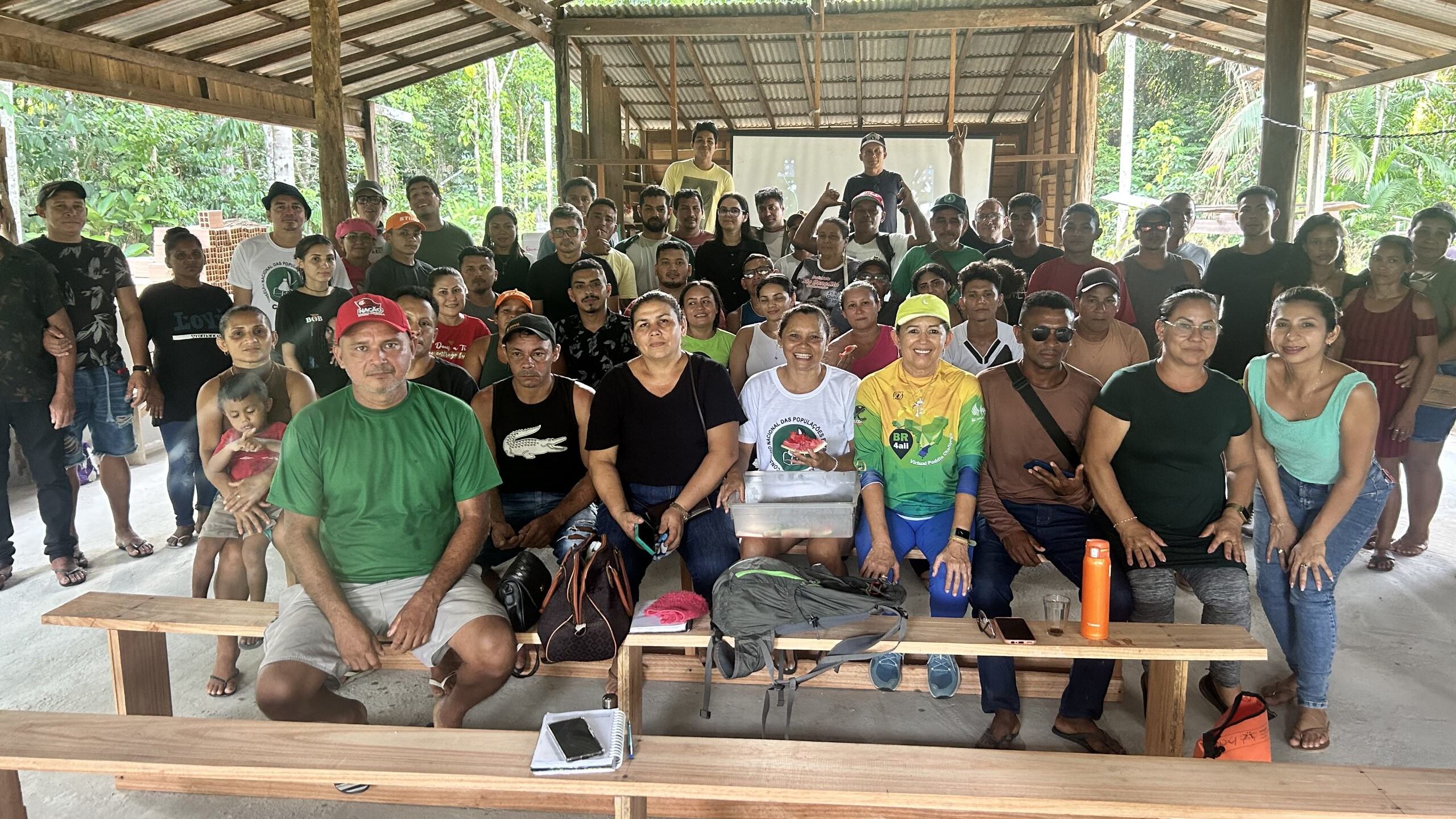Initiative seeks to improve infrastructure, empower communities and ensure fairer access to markets

Fundo Vale recently visited the Arioca-Pruanã and Mapuá extractive reserves in Pará, as part of its strategy to monitor projects to strengthen social and biological diversity production chains in the Brazilian Amazon. The visit focused on community forest management projects. In partnership with the Tropical Forest Institute, Fundo Vale supports the sustainable harnessing of timber by the communities living in these areas. The aim of this project is to strengthen local governance and technical capacities, helping improve the quality of life of these communities, located in one of the regions with the lowest Human Development Index scores in the country.
On this occasion, meetings were held with local communities to discuss community participation and there were visits to management areas to see structures built with the support of Fundo Vale.
As well as improving the infrastructure of management plans and the technical capacity of extractive producers, the project seeks to promote vertically integrated production, strengthen collective decision-making spaces, foster new social and biological diversity chains and guarantee fairer access to markets.
Visits to conservation areas are part of an ongoing effort to ensure the effectiveness of the projects supported by Fundo Vale and to measure the positive impact generated. In addition to field inspections, monthly monitoring meetings are held and technical reports are produced.
“The opportunity to witness this work on site is a unique experience. Getting to know the way these extractive communities live and work opens our eyes to the importance of sustainable management in the Amazon for forest conservation,” said Mônica Fonseca of Fundo Vale’s Amazon and Partnerships Area.
About the Tropical Forest Institute
The Tropical Forest Institute, founded in 2003, is a civil society organization that promotes practical solutions in sustainable forest management, with a focus on training, technical assistance and research. Its goal is to keep the forest standing while generating income and jobs. The institute offers training for government agents, students, communities and small producers, and is supported by development organizations. It is currently the only independent practical forest management training center in operation in the world.
